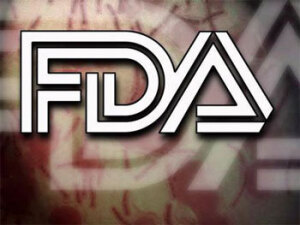Device Reviewers From FDA Allege Agency Coerces Unsound Judgments
by
Joan Trombetti, Writer | November 21, 2008

FDA
A group of FDA reviewers of devices and diagnostic products have lodged complaints to a congressional committee that they have been pressured into approval recommendations that they believed were against their scientific judgments.
In the letter of complaint filed and released by the House Energy and Commerce Committee, the FDA Center for Devices and Radiological Health reviewers revealed that managers, who had no expertise in medical devices, forced changes in written opinions.
Physicians and scientists among the reviewers said that such coercion was against the law. They said that managers at the Center for Devices and Radiological Health, to avoid accountability have ordered, intimidated and coerced FDA experts to modify their scientific reviews' conclusions and recommendations in violation of the law.
After trying to go over their managers' heads, the reviewers were reprimanded and subjected to reprisals, including "removal and threatened removal," according to the letter.
Rep. John Dingell (D-Mich.) and Rep. Bart Stupak (D-Mich.), stated in a release that such activity could allow potentially unsafe and ineffective medical devices into the U.S. market.
In the meantime, the reviewers have pleaded for congressional intervention to address the "serious misconduct." Investigation into the charges are planned by the congressmen.
Specific reviews documented in the letter were kept confidential by the committee, as were the names of the whistle-blowing reviewers. But, the reviewers said that their managers ordered them to use "unsound evaluation methods," and to accept clinical and technical data that was not scientifically valid or that was obtained illegally by not receiving proper informed consent from human participants.
The letter stated most of the problems were with applications for products similar to others already approved, which require less stringent review. But applications for first-in-class devices, involving extensive safety and efficacy testing, were also affected.
Dingel commended the FDA scientists for sounding the alarm on what appears to be a serious problem and said that the allegations were deeply concerning and that they intend to uncover whether any FDA activity has compromised the health and safety of America's consumers.
Stupak said the committee plans to hear what actions the FDA will take to fix problems with its device approval process while ensuring the whistle blowers do not face any retaliation from within the agency.
Dingell and Stupak sent a letter to FDA commissioner Andrew von Eschenbach, M.D., requesting a briefing on the situation before Dec. 1.
According to that letter, Dr. von Eschenbach assigned an FDA staff member to investigate the allegations brought forward by many of the same scientists in a letter to the FDA head earlier this year, but no action has been taken. According to a spokesperson, the FDA will respond directly to Congress.
